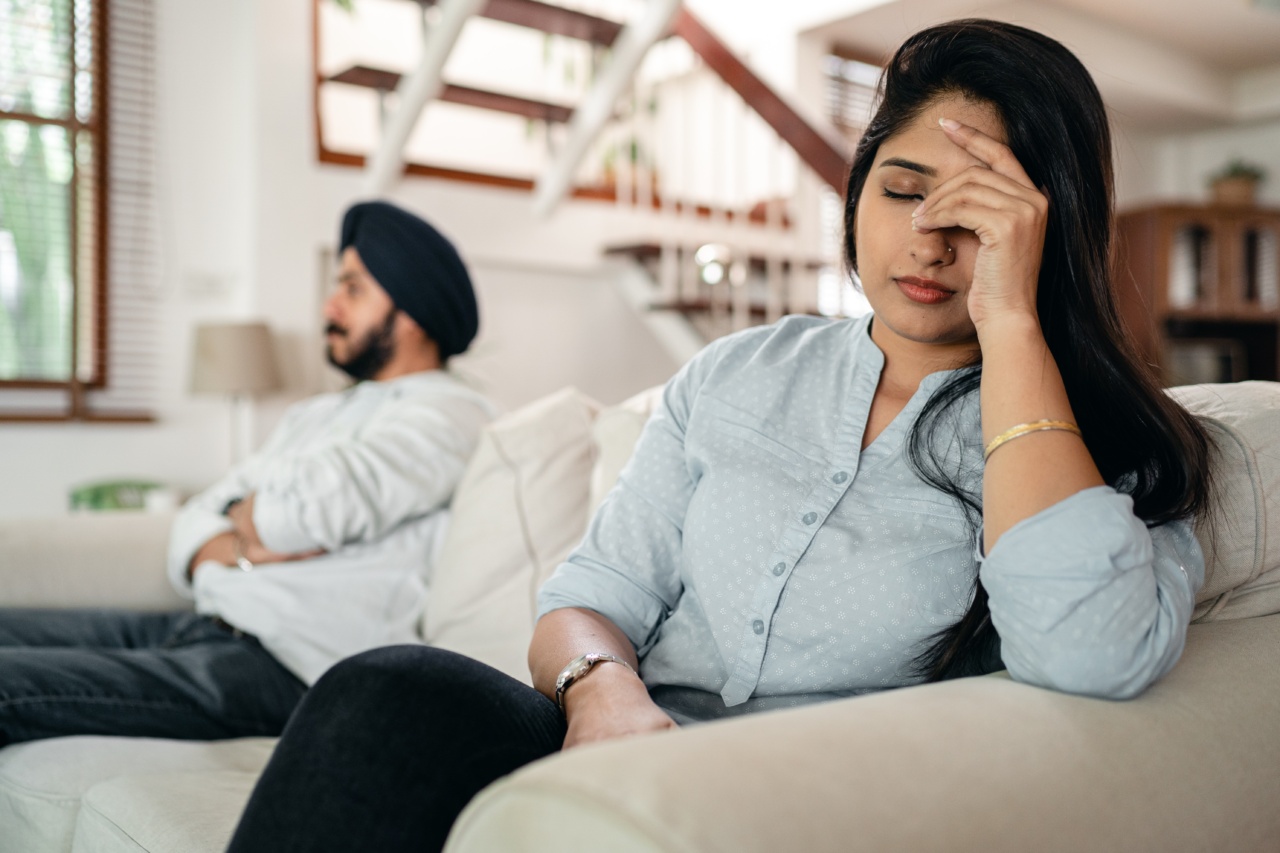When Partner Anxiety Causes Weight Gain.
Understanding Partner Anxiety
Anxiety can have a significant impact on a person’s life, affecting their mental and physical well-being.
While anxiety disorders are commonly associated with individuals, it is important to acknowledge that anxiety can also affect those in close relationships, including partners. Partner anxiety refers to the anxiety that individuals experience due to their partner’s anxiety or related issues.
The Connection Between Partner Anxiety and Weight Gain
Research suggests that there is a strong correlation between partner anxiety and weight gain. When a partner experiences anxiety, it can often lead to changes in their behavior, which can subsequently affect the other partner’s behavior.
These changes can extend to various aspects of daily life, including diet, exercise, and overall lifestyle choices.
Unhealthy Coping Mechanisms
Partner anxiety can trigger the adoption of unhealthy coping mechanisms, such as emotional eating or excessive snacking.
When one partner feels anxious, they may turn to food as a source of comfort or distraction, leading to an increase in calorie intake and subsequent weight gain. Additionally, stress hormones released during anxiety can also contribute to an increased tendency to overeat or indulge in unhealthy food choices.
Shared Lifestyle Habits
When one partner struggles with anxiety, it can impact the overall lifestyle habits of both individuals in the relationship.
For example, engaging in physical activities together may become less frequent as the anxious partner may feel less inclined or motivated to participate. This reduction in physical activity can lead to weight gain for both individuals, as they may engage in more sedentary behaviors and burn fewer calories.
Emotional Support and Eating Patterns
Partner anxiety can also affect eating patterns and meal choices within the relationship. Emotional distress experienced by the anxious partner may result in irregular eating habits, such as skipping meals or binge eating.
These patterns can influence the other partner’s eating behavior as well, leading to disrupted meal times, increased portion sizes, or consuming less nutritious food options.
Stress and Weight Gain
Anxiety often goes hand in hand with stress, and both can contribute to weight gain. When a partner is anxious, it can create a stressful environment within the relationship.
Chronic stress can lead to the release of cortisol, a hormone known to increase appetite and promote the storage of fat, particularly in the abdominal region. This increased cortisol production can result in both partners experiencing weight gain.
Impact of Relationship Dynamics
Partner anxiety not only influences weight gain but can also impact the dynamics within the relationship itself. The anxious partner may seek reassurance or validation from their partner, leading to increased dependency or a shift in power dynamics.
These changes can affect the self-perception and confidence of the other partner, potentially contributing to their own weight gain or body image issues.
Communication and Support
Healthy communication and support within a relationship can play a crucial role in managing partner anxiety and mitigating the associated weight gain.
Open dialogue can help the anxious partner express their emotions and concerns, while the other partner can provide the necessary support and reassurance. By actively discussing anxiety-related challenges, both partners can work together to find healthier coping mechanisms and lifestyle habits.
Seeking Professional Help
Partner anxiety and its impact on weight gain may require professional intervention. Couples therapy or individual therapy can be beneficial in addressing the underlying causes of anxiety and improving coping mechanisms.
A mental health professional can guide both partners in developing strategies to manage anxiety and prevent weight gain.
Self-Care and Stress Management
Self-care practices and stress management techniques can help alleviate partner anxiety and reduce the likelihood of weight gain.
Encouraging both partners to engage in stress-relieving activities, such as exercise, meditation, or hobbies, can promote overall mental well-being and reduce emotional overeating tendencies.
Building Healthy Habits Together
Instead of focusing solely on the negative impact of partner anxiety on weight gain, both individuals can work together to build healthier habits.
Engaging in regular physical activity as a couple, meal planning with nutritious options, and supporting each other’s mental health can contribute to both partners maintaining a healthy weight and overall well-being.
Conclusion
Partner anxiety can have significant consequences beyond individual mental health, including weight gain within the relationship.
Recognizing the connection between partner anxiety and weight gain is essential for both partners to address the issue together. By prioritizing open communication, seeking professional help when necessary, and focusing on self-care and healthy habits, it is possible to mitigate the impact of partner anxiety and foster a supportive and healthy relationship.































